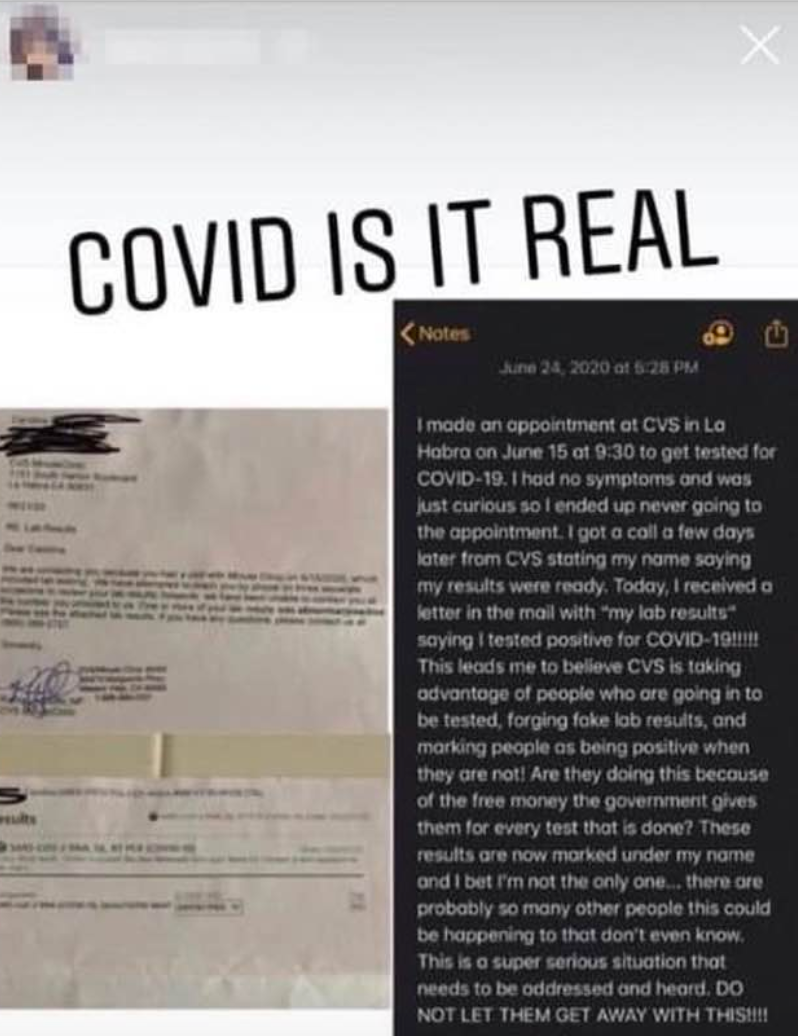

False-positive results mean the test results show an infection when actually there isn't one. There's also a chance that a COVID-19 rapid antigen test can produce false-positive results if you don't follow the instructions carefully. If you have symptoms, you risk unknowingly spreading the virus to others if you don't take proper precautions, such as wearing a face mask when appropriate. This means that the test didn't detect the virus, even though you actually are infected with it. There's a chance that your COVID-19 diagnostic test could return a false-negative result. The availability of COVID-19 diagnostic testing and where to get tested may vary depending on where you live and the recommendations of your local public health officials. If people without symptoms have a positive test result, they should follow guidelines for self-isolation to help curb the spread of the virus. But they can still spread the virus that causes COVID-19 to others. Some people who have COVID-19 may not have symptoms (asymptomatic). Other people may be given priority for testing depending on local health department guidelines for monitoring COVID-19 in individual communities.
#Do cvs covid tests work professional
Your health care provider, other health care professional or your public health department recommends a test and you're not fully vaccinated.Even if you don't have symptoms, the Centers for Disease Control and Prevention (CDC) recommends getting tested at least five days after the exposure. You've had close contact with someone with COVID-19.You have COVID-19 symptoms, such as fever, cough, tiredness or shortness of breath.In the U.S., a COVID-19 diagnostic test may be needed if: So the testing process may include more steps, depending on symptoms, possible exposures and your provider's clinical judgment. But a negative result does not rule out the possibility of any of these infections. This could be helpful during the flu season. Only a single sample is needed to check for all three viruses. Depending on the situation, the health care provider may recommend a RT-PCR test to confirm a negative antigen test result.Ī RT-PCR test called the Flu SC2 Multiplex Assay can detect any of three viruses at the same time: the COVID-19 virus, influenza A and influenza B (flu). But there's an increased chance of false-negative results - meaning it's possible to be infected with the virus but have a negative result. Others may be sent to a lab for analysis.Ī positive antigen test result is considered accurate when instructions are carefully followed. Using a long nasal swab to get a fluid sample, some antigen tests can produce results in minutes. This COVID-19 test detects certain proteins in the virus. RT-PCR tests are very accurate when properly performed by a health care professional, but the rapid test can miss some cases.Īntigen test.

Results may be available in minutes if analyzed onsite in 1 to 3 days - or longer in locations with test processing delays - if sent to an outside lab. Or you may spit into a tube to produce a saliva sample. In some cases, health care professional inserts a long swab into the back of your throat (oropharyngeal swab). A sample may be collected by using a shorter nasal swab (mid-turbinate swab) or a very short swab (anterior nares swab). A health care professional collects a fluid sample by inserting a long nasal swab (nasopharyngeal swab) into your nostril and taking fluid from the back of your nose. Also called a molecular test, this COVID-19 test detects genetic material of the virus using a lab technique called reverse transcription polymerase chain reaction (RT-PCR).


 0 kommentar(er)
0 kommentar(er)
